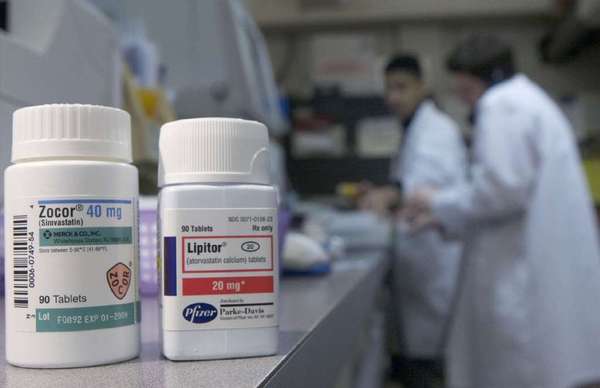Who would have thought that something as simple as copying data would create so much fuss and upheaval; but the confusion starts to make sense when it comes down to avoiding inaccuracy regarding a heart patients medical data. Many physicians today are facing the impact of copy forwarding patient data without verifying its accuracy or relevance. This is because most physicians only have limited time to concentrate on medical care and the demanding nature of their work leaves them with little patience to sift through sheets of medical data.
Though highly critical most physicians busy in handling their core activities find it difficult to maintain medical data. Being a time consuming and hectic task they prefer getting transcription services; who being specialists in their field of work; are able to offer expert documentation support for flawless medical documentation.
Medical transcription becomes even more vital when it comes to Cardiology; this is because a cardiologist will generally prescribe a large number of tests to a patient with a heart problem. Besides this the physician needs to take down all other data relevant to the patient’s past health records like other illnesses, family history, allergies to drugs and so on. Eventually all the information becomes necessary in managing and treating the patient; hence this huge amount of medical data becomes difficult for the cardiologist to look into and most prefer getting the data sorted from a reliable cardiovascular transcription service.
Growth of cardiology transcription services
There are various professional agencies which have the requisite infrastructure and team of well-trained medical transcriptionist catering to specific requirements of the healthcare provider. For instance, cardiovascular transcription services at Eyered are offered by specialized transcriptionists working specifically on the cardiology segment for providing and maintaining efficient cardiology transcription services.
There are also a large number of heart surgeons and cardiology clinics outsourcing their transcription services to companies based in India; which has become popular destination for providing high quality medical transcription services at competitive prices. Moreover various cardiologists across USA, UK and Canada also prefer seeking outsourced transcription services.
Vital role of a cardiology transcriptionist-
Transcriptionists not only help reduce the overall cost incurred in cardiovascular care but are also play a vital role in streamlining cardiology reports. Heart ailment involves getting various tests and scans done- MUGA scan, echocardiogram, ultrasound imagining, cardiac stress test, halter monitoring, pacemaker evaluations, etc. requiring maintaining a large amount of data and medical files, which is made easier with the help of a transcriptionist.
According to a medical team at Cleveland Clinic, good cholesterol, or HDL, also has a nasty side that can increase the risk of heart attacks.
HDL (high-density lipoprotein) cholesterol normally helps to keep arteries clear and is good for heart health.
But the team at the Cleveland Clinic showed it can become abnormal and lead to blocked blood vessels.
Doctors say people should still eat healthily, but that the good cholesterol story is a more complex tale than previously thought.
Low-density lipoprotein (LDL) cholesterol is “bad” because it is deposited in the walls of arteries and causes hard plaques to build up that can cause blockages, resulting in heart attacks and stroke.
HDL cholesterol is “good” because the cholesterol is instead shipped to the liver.

HDL cholesterol also has a nasty side that can increase the risk of heart attacks
The evidence shows that having a high ratio of good to bad cholesterol is good for health.
However, researchers at the Cleveland Clinic say trials aimed at boosting levels of HDL have “not been successful” and the role of good cholesterol is clearly more complicated.
In their study, published in the journal Nature Medicine, doctors showed how HDL cholesterol could become abnormal.
One of the researchers, Dr. Stanley Hazen, said HDL cholesterol was being modified in the walls of the artery: “In the artery walls it is acting very differently to in the circulation. It can become dysfunctional, and contributes to the development of heart disease.”
Small quantities of the abnormal HDL seep back into the bloodstream and this can be detected.
Tests on 627 patients showed that levels of abnormal HDL in the blood could be used to predict the risk of cardiovascular disease.
Dr. Stanley Hazen added: “This data does not change the message of eat healthily.”
Instead, he said the findings would be used to develop new tests for abnormal HDL cholesterol and research on drugs to help block its formation.
According to new guidelines, a third of all adult Americans should consider taking cholesterol-lowering statin drugs.
The first such new guidelines in a decade estimated that 33 million Americans – 44% of men and 22% of women – would meet the threshold for taking statins.
The new recommendations were issued by two leading US medical organizations, American Heart Association (AHA) and American College of Cardiology.
The statins are currently recommended for 15% of adults.
The guidelines for the first time take aim at strokes, not just heart attacks.
Under the current advice, statins are recommended for those who have total cholesterol over 200 and LDL, or “bad cholesterol”, of over 100.
The new recommendations place much less emphasis on setting numerical cholesterol-lowering targets for patients.
The advice introduces a new formula for calculating a patient’s risk of heart disease based on such factors as age, gender and race, instead of high cholesterol levels alone.

Heart health panel recommends statins for a third of US adults
“This guideline represents a departure from previous guidelines because it doesn’t focus on specific target levels of LDL, or bad cholesterol, although the definition of optimal LDL cholesterol has not changed,” Dr. Neil Stone, author of the report, said in a statement.
It is thought that more women and African-Americans, who are deemed to be at higher risk of stroke, could find themselves taking statins if they follow the guidelines.
The panel focused on four groups they believe statins would benefit most: people already suffering from heart disease; those with LDL levels of 190 or higher because of genetic risk; older adults with type 2 diabetes; and older adults with a 10-year risk of heart disease greater that 7.5%.
The panel also recommended a “diet pattern” based on vegetables, fruits and whole grains and moderate to vigorous exercise three to four times a week for all adults.
Roughly half of those drafting the guidelines had financial ties to makers of heart drugs.
But panel leaders said that no-one with industry connections was allowed to vote on the actual recommendations.
“It is practically impossible to find a large group of outside experts in the field who have no relationships to industry,” Dr. George Mensah, of the AHA, told the Associated Press news agency.
Dr. George Mensah said the guidelines were based on solid evidence.
Many of the patents on popular statins, such as Lipitor and Zocor, have expired, with generic versions being offered cheaply.
But Crestor, a statin made by AstraZeneca, remains under patent, with sales of $8.3 billion in 2012.
[youtube cfJLpuRm0b0 650]



